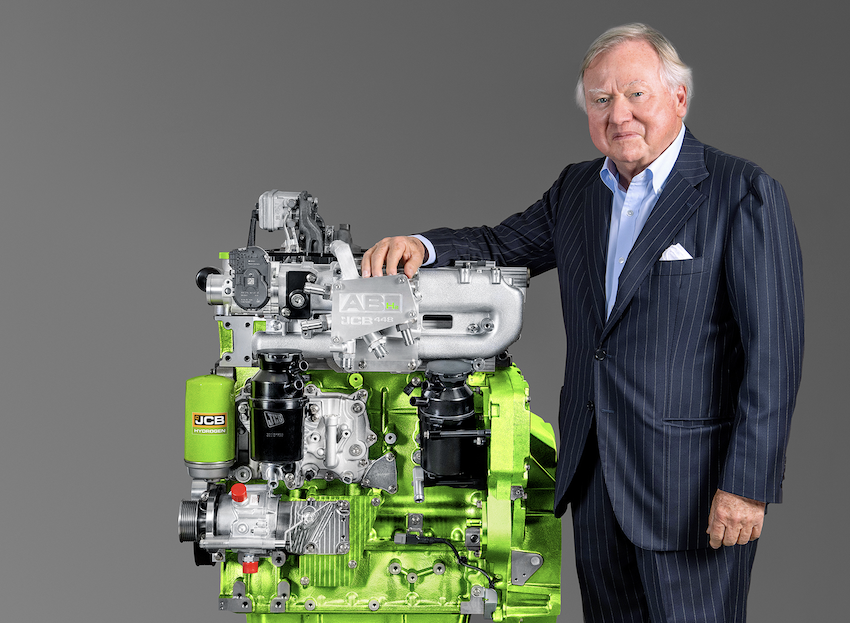JCB has called on industry leaders to get behind the government’s call for evidence on how non-road mobile machinery (NRMM) might be powered in the future.
Evidence is being sought on how NRMM might decarbonise as part of the Government’s wider net zero ambitions. As the clock ticks down to the March 26th submissions deadline, JCB chairman Anthony Bamford called on industry to embrace a unique opportunity to shape the future.
JCB has been at the forefront of the development of super-efficient hydrogen combustion engines as part of a £100 million investment to develop a zero-carbon emissions solution for construction and agricultural equipment. JCB has also led the way in electric technology, which is suitable for smaller machines that do fewer hours and typically use less fuel than larger machines which have a higher energy requirement.
“The call for evidence is a crucial milestone that should be taken very seriously by everyone who is affected, from trade associations to owners and users of non-road mobile machinery,” said Lord Bamford. “This is a historic landmark for many industries, particularly the construction and agricultural sectors which JCB has supplied for nearly 80 years. It is vital everyone affected engages in this process to help determine which technologies are appropriate to achieve a net zero future. In JCB’s case, we will highlighting the important role that hydrogen will play alongside electric technology for smaller products.”
The call for evidence is being led by the Department for Energy Security and Net Zero, the Department for Environment Food and Rural Affairs and the Department for Transport. It focuses on the potential ways of decarbonising at least 58 diverse NRMM products covering construction and agricultural equipment, and also machinery used in warehousing, logistics, mines and quarries.
To participate in the call for evidence visit:
https://www.gov.uk/government/calls-for-evidence/non-road-mobile-machinery-decarbonisation-options

